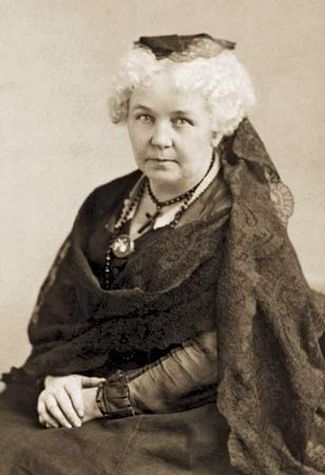Elizabeth Cady Stanton had a very modern way of thinking during the 20th century. Elizabeth had a very assertive and passionate personality concerning the many injustices facing women and African Americans. Being that her father was a lawyer she was fortunate to have an insight on laws and the legal system. Elizabeth and her father did not agree on a variety of different issues; the main issue was women suffrage. Elizabeth was first introduced to the idea of abolishing slavery while visiting a cousin. Her cousin informed her that his house was one of the stops on the Underground Railroad. Elizabeth was able to meet and talk with Harriet Tubman; during that time they exchanged different views on slavery and women’s suffrage. In 1868, Elizabeth worked with Susan B. Anthony on the Revolution, a militant weekly paper. From there they formed the National Woman Suffrage Association (NWSA) in 1869. Stanton was the NWSA’s first president. At that time the organization merged with another suffrage group to form the National American Woman Suffrage Association. Stanton served as the president of the new organization for two years. Elizabeth often traveled to give lectures and speeches. She called for an amendment to the U.S. Constitution giving women the right to vote. Besides chronicling the history of the suffrage movement, Elizabeth took on the role religion played in the struggle for equal rights for women. She had long argued that the Bible and organized religion played in denying women their full rights. Elizabeth and her daughter Harriet Stanton Blatch published a critique, The Woman's Bible, which was published in two volumes. The bible received considerable protest not only from expected religious quarters but from many in the woman suffrage movement. As she began to age she became less concerned with suffrage and more interested in divorce reform and other matters during her last years. Elizabeth was able and willing to speak out on a wide spectrum of issues from the primacy of legislatures over the courts and constitution, and women’s right to ride bicycles. Elizabeth was extremely zealous on the women’s suffrage.
Overwhelm: upset, overthrow
Plebiscite: A direct vote of the qualified voters of a state in regard to some important public question

No comments:
Post a Comment